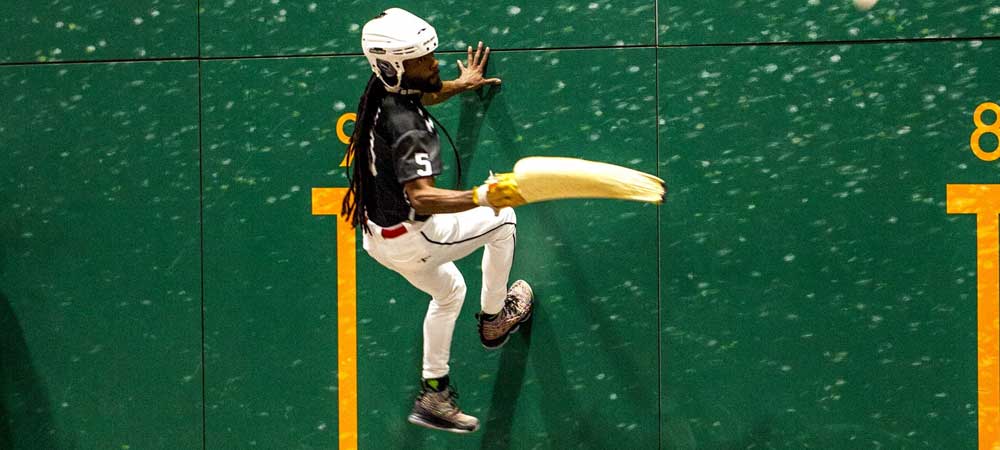Miami, FL. - If you’ve ever been to a Florida dog track, you’ll understand why “decoupling” the cavorting canines from the gaming that goes on indoors has been a longstanding yearly gambit by operators throughout the state. In short, the business of dog racing is a losing proposition, bolstered by more traditional slots and card gaming, and the government spends more on regulating the animal aspect than the poor man’s ponies actually generate in taxable revenue. It’s bad for the taxpayer, bad for the businesses, and – in a rare trifecta – bad for the state.
To that end, Magic City Casino in Miami has finally received a six-years-in-the-making go-ahead to drop the dogs and replace them with a different pari-mutuel event. So if you like betting on dudes slinging weird goatskin balls out of giant wicker hook-hands at around 200 miles per hour, you’ll soon be able to get your jai alai jollies in south Florida.
Unfortunately, while Magic City is the first track in the state to successfully navigate the regulatory nonsense around such a transition, it could be the only one to enjoy that level of success for the foreseeable future. Other Florida dog tracks, like Broward County’s Mardi Gras Casino and Racetrack, haven’t had much luck following in Magic City’s footsteps.
All that said, do not make the mistake that jai alai is some sort of hugely sought-after bettor’s dream. It isn’t. The general consensus is that, like the dogs, nobody really cares about it, and the game is only attractive to casinos and tracks as a much cheaper pari-mutuel alternative to dog racing, costing far less to host and maintain. If businesses and bettors had their ways, jai alai probably wouldn’t even exist anymore. But until the pari-mutuel aspect of Florida dog tracks is no longer a government prerequisite to operate a gambling site in the state, expect a continued push to replace the muzzled critters with the cheaper alternative for sportsbetting in Florida.

